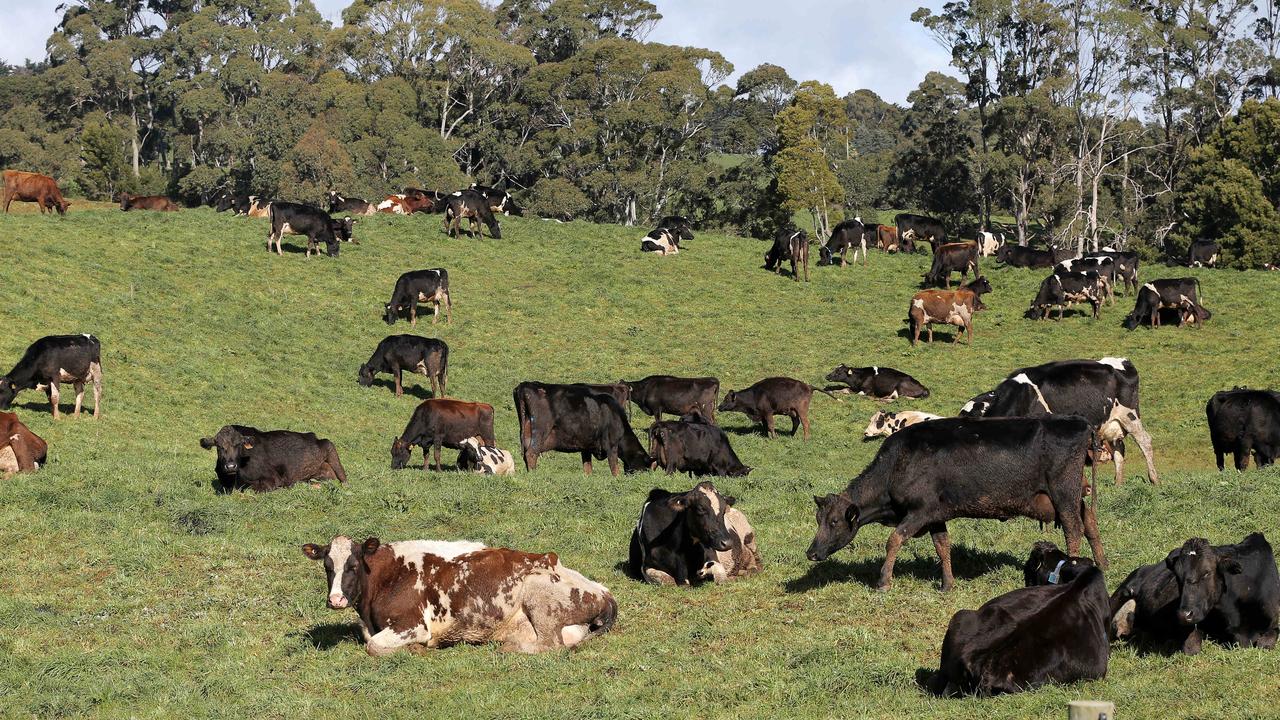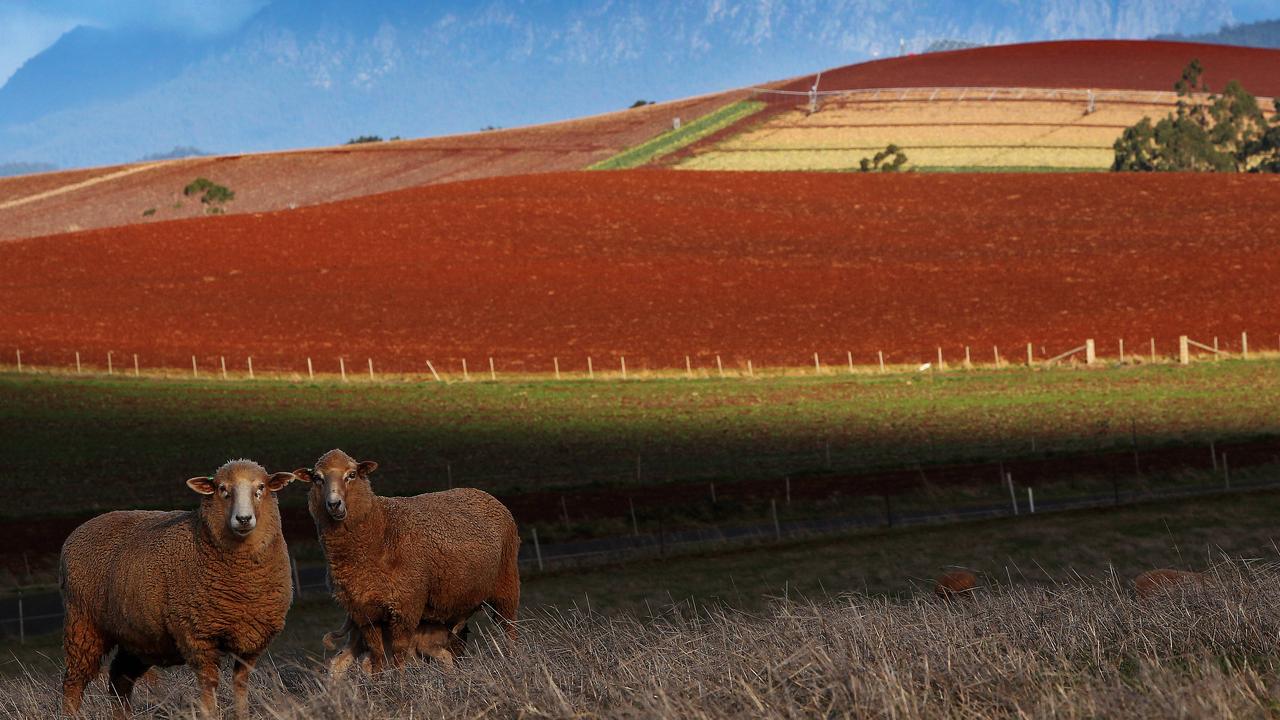Lileah dairy farmer takes out environmental award
An award-winning organic dairy producer says looking after the soil is the basis of his healthy cow herd and good pasture production.
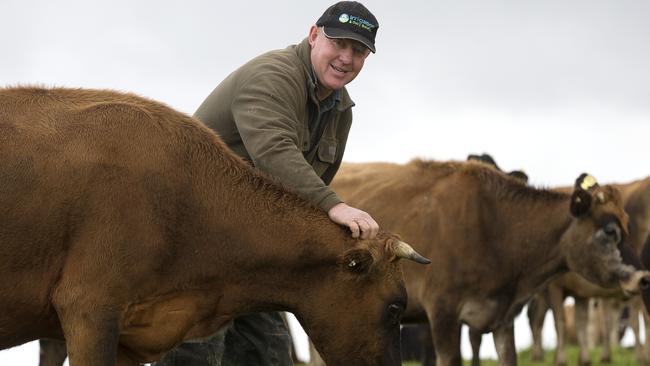
A BIG focus on soil health has helped organic dairy farmer Gary Watson increase his pasture production and win an environmental award.
Mr Watson, who farms at Lileah with his wife, Michelle, recently took home this year’s Tasmanian Dairy Environmental Award.
After buying his 300ha property about 15 years ago, Mr Watson has put in a lot of work to help improve the farm’s environmental sustainability.
As well as fencing of remnant native bushland, a lot of Mr Watson’s work has focused on what is happening below the ground surface.
He said he started experimenting with different soil treatments about 10 years ago.
“I started looking at what was happening in the world, with Europe putting restrictions on urea, and starting to see an unhealthy situation with farming and cows and the amount of sick cows we used to get and the amount of antibiotics we were beginning to use,” Mr Watson said.
“So I started thinking this can't go on forever and we needed to change.”
The farm has been officially certified organic for four years.
Mr Watson said he had seen a big change in attitudes towards soil health in the past few years.
“Even five years ago I was just a nutty farmer in Lileah and I was going to go broke because I don’t do fertiliser and all that sort of stuff,” he said.
“And now we’ve had plenty of field days here and conventional farmers are going wow this is different, look at the health of these plants.
“There are farmers now that are conventional and they are not going to go organic probably and there’s no issue with that, but they’re starting to do the tests I’m doing and use the fertilisers that I’m using.”
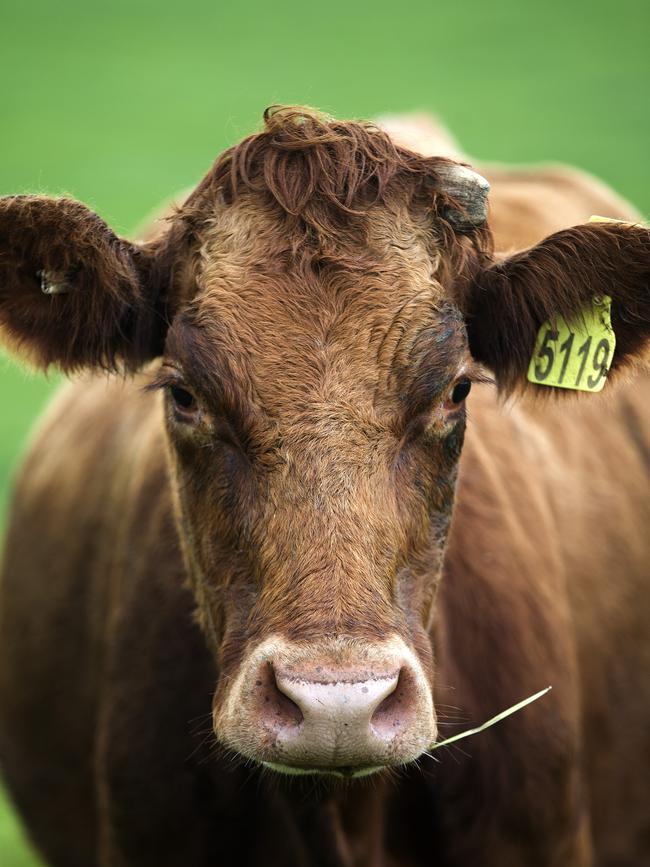
Mr Watson’s soil samples are analysed by a company in the United States and they also do regular hair- sample testing.
“It tells us what is actually coming through the plant to the cows and what’s locked up in the soil that the cows aren’t getting,” he said.
“Once you get everything in the soil, using the bacteria as well and the fungi gets going, all the natural rock sulfates that we use break down really well and they don’t leach into the environment or the rivers.”
Mr Watson said one key factor had been finding a company that can do full soil analysis for them and a consultant who can look at the whole system including the soil, plants and the cows.
Fully utilising the fertiliser already in the soils has also seen an improvement in pasture production across the farm.
“Red soils are really bad for locking up fertiliser, up to 90 per cent can be locked up,” he said.
“I’ve got tonnes and tonnes of fertiliser there that we’re releasing now and that’s showing up in the soil tests. We’re growing more grass now then we were when we were conventional.”
As a result of getting his whole system back into balance, including trace elements, Mr Watson said they had seen health problems in the herd virtually disappear.
This season the farm will be calving down about 450 cows.
Effluent management is another area where his farm has made improvements.
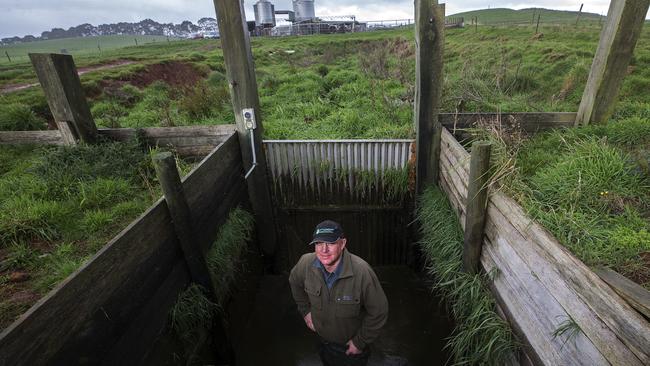
Mr Watson has built an effluent pond with a weeping wall, which allows the liquids to move through and retains the solids.
The liquid then goes into a large tank and is pumped out through a solid-set irrigation system that covers 100ha.
The Watsons have also installed a 45-kilowatt solar-panel system.
While the payback period is about five years, Mr Watson said the panels produced about half the power needed to run the dairy.
Mr Watson said they were always looking for new ways to reduce their energy and fuel consumption.
“We’ve changed our practices even with cows coming to the shed,” he said.
“They walk the cows in now. The running of the gators … quite often it takes an hour to get to the shed and those things are just idling along.”
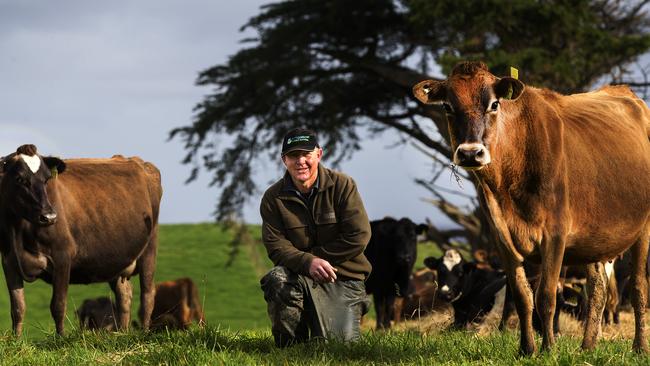
Mr Watson said the main reason for the change was to prevent lameness, which is more common when using vehicles to move the cows as the flow is interrupted.
Together with fellow organic producer Simon Elphinstone, Mr Watson started the Organic Milk Group about 18 months ago.
The company is now selling OMG- branded milk across the state.
Mr Watson said changes to where their milk is being bottled would soon see the brand expand production.
He said their aim was to supply their milk to the mainland.
Eventually Mr Watson said he would like to become 100 per cent self- sufficient for energy on farm the and he is keen to explore the use of bio-digesters and methane.

